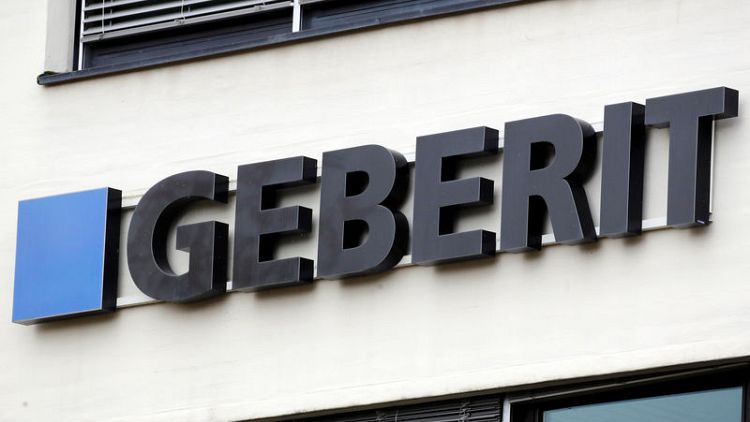By John Revill
ZURICH (Reuters) - Geberit said it expected 2019 to be a "challenging" year, citing increased economic volatility and a construction slowdown in many markets, as it reported first quarter earnings ahead of expectations.
Brexit, Italian political risks and a shortage of fitters in Germany were all cited by the group as downward factors by the Swiss company whose results are often seen as an indicator for the health of the broader construction sector.
"2019 will be challenging due to a general increase in volatility and the slowdown of construction activity in individual markets," said Geberit, whose products are used in new build and renovation projects.
The plumbing materials supplier said net profit rose 9.3 percent to 192 million Swiss francs (£144.6 million), beating analyst expectations for 175 million francs in an Infront Data poll.
Operating cashflow (EBITDA) rose 6.8 percent to 262 million francs, while sales increased 0.9 percent to 830.3 million francs beat expectations of 821 million francs.
Geberit said its profits were helped by lower raw material prices, higher sales volumes and by selling more of its profitable products, which include shower toilets.
Demand in Germany, the company's biggest market, was likely to still be constricted by a shortage of installers, while a flat market is expected in France, it said.
The company, said political risks in Italy made it cautious about its prospects there while it expected a "downward trend" in Britain due to the country's ongoing departure from the European Union.
Geberit also said it expected raw materials prices - it uses copper, aluminium and zinc and plastics in its products - to increase again in the second quarter.
(Reporting by John Revill)



